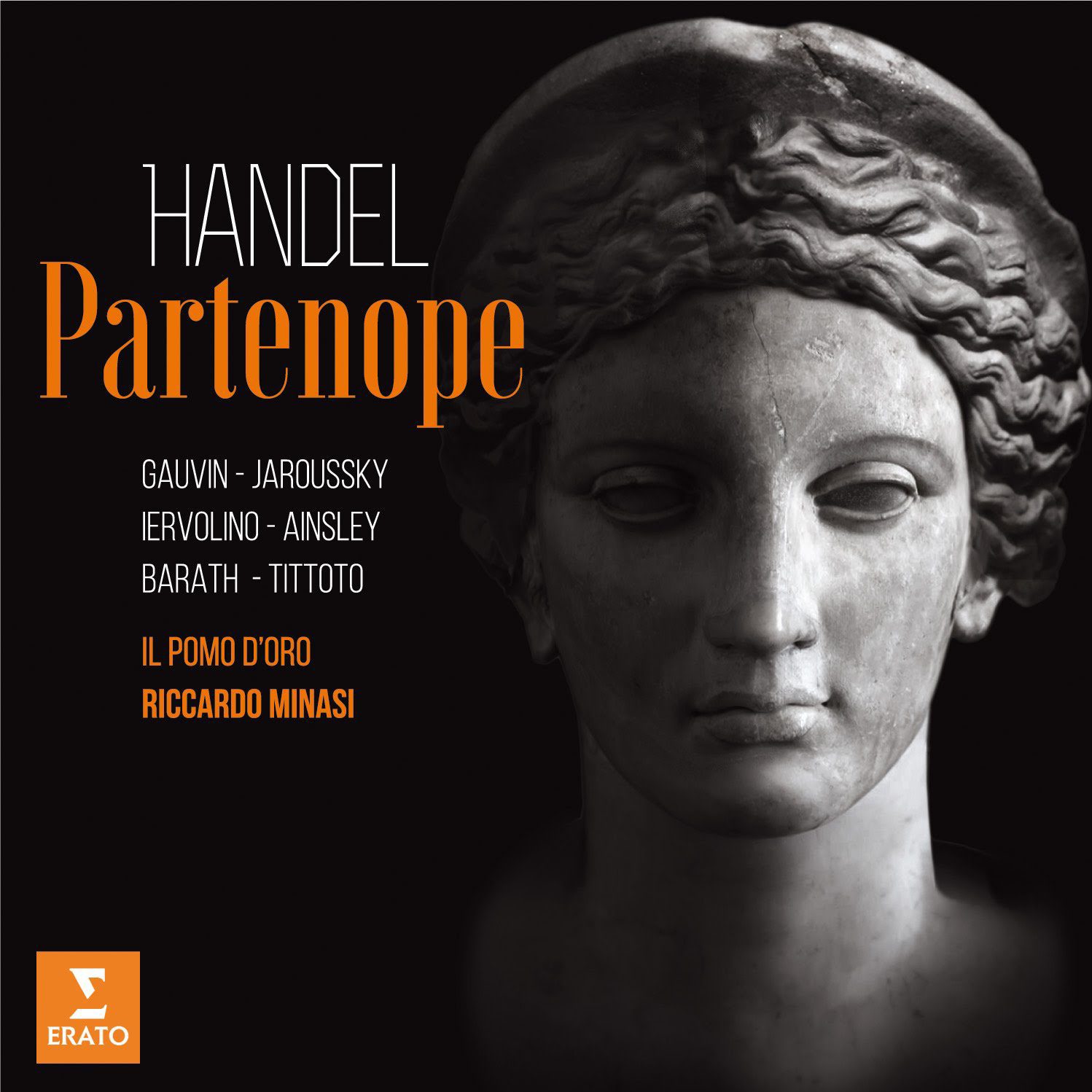
HANDEL: PARTENOPE
Handel
Partenope HWV 27 (Opera in 3 Acts)
Gauvin, Jaroussky, Ainsley, Baráth, Iervolino, Tittoto
il Pomo d’Oro
Riccardo Minasi
(Erato)
winner of the NY Times album of the year
[…] Erato has been fortunate that the excellent Riccardo Minasi has filled the gap in its stable left by the death of the late Alan Curtis. His crack period ensemble Il Pomo d’Oro has a real command of Handel’s fiery operatic style and Minasi is an immensely sure-footed musical dramatist.[…]
Clive Paget – Limelight Magazine
[…] Erato’s new set—with Il Pomo d’Oro’s fluent, crisp playing under Riccardo Minasi—should satisfy those looking for a good performance. […]
David Shengold – Opera News
Riccardo Minasi’s triumphant new recording is so sensitive to the work’s shifting tone – by turns buoyant and light-footed, tender, humorous (just listen to the mock-martial relish of the horns in Rosmira’s Act 1 closer ‘Io seguo sol fiero’) – and so impeccably cast as to bring this unusual work’s virtues into sharp new focus.[…] An onstage battle adds political scope and instrumental colour to an essentially domestic narrative, generating a thrilling sequence of orchestral and vocal episodes. The introductory Marche captures the difference between Curnyn and Minasi. Precise, measured and texturally clean, Curnyn’s battle would do any British general proud, but Minasi’s is the florid, boisterous conflict of opera, bright with jangling percussion additions and the sword-clatter commentary of the harpsichords. You can smell the blood and the braggadocio. […]
Minasi follows previous recordings in using Handel’s original 1730 score as the basis for his performing edition, but also steals judiciously from later revivals – notably an extra aria for Armindo (‘Come se ti vedro’) and an attractive trumpet sinfonia. The result, burnished with the conductor’s swift speeds and careful pacing, is a recording that needs no visuals to bring its story to life, an opera lively with human insight and understanding – to comedy what Giulio Cesare is to tragedy.
Minasi has made a masterpiece, catching the passing glances and sideways smiles of Handel’s score, and transforming them into something of real dramatic substance. Minasi’s back-catalogue is exceptional but this is his finest work yet.
Gramophone
As librettos go, Silvio Stampiglia’s Partenope was one of the most widely travelled. First set to music in Naples by Luigi Mancia in 1699, it was set by the Mexican Manuel de Zumaya 20 years before Handel’s 1730 premiere in London. With fame came notoriety for what is, essentially, a sex farce. The Royal Academy of Music’s Owen Swiny described it in 1726 as ‘the very worst book (excepting one) that I ever read in my whole life.’ Dramaturgically speaking, Swiny had a point; but Handel’s setting is a moreish confection of limpid sicilianos, ebullient coloratura, startling martial music and a plangent Act III sommeil for the primo uomo, Arsace (Jaroussky).
Directed by Riccardo Minasi on violin and viola d’amore, Il Pomo d’Oro plays with tremendous attention to detail, as responsive to variations of timbre, articulation and dynamic as the singers: in Arsace’s ‘Ma quai note di questi lamenti’, the orchestra fades almost to nothing in the hushed final cadence. As the siren Partenope, Karina Gauvin brings an easy glamour. John Mark Ainsley is a suave Emilio, brilliant in ‘La gloria in nobil alma’. Teresa Iervolino smoulders attractively as the disguised Rosmira, while Emöke Baráth is deliciously slinky in Armindo’s ‘Non chiedo, oh luci vaghe’. Were the recitatives a touch faster and less deliberate, it would be a perfect performance.
Anna Picard – BBC Music Magazine
Release Date : 6/11/2015
Label : Erato
